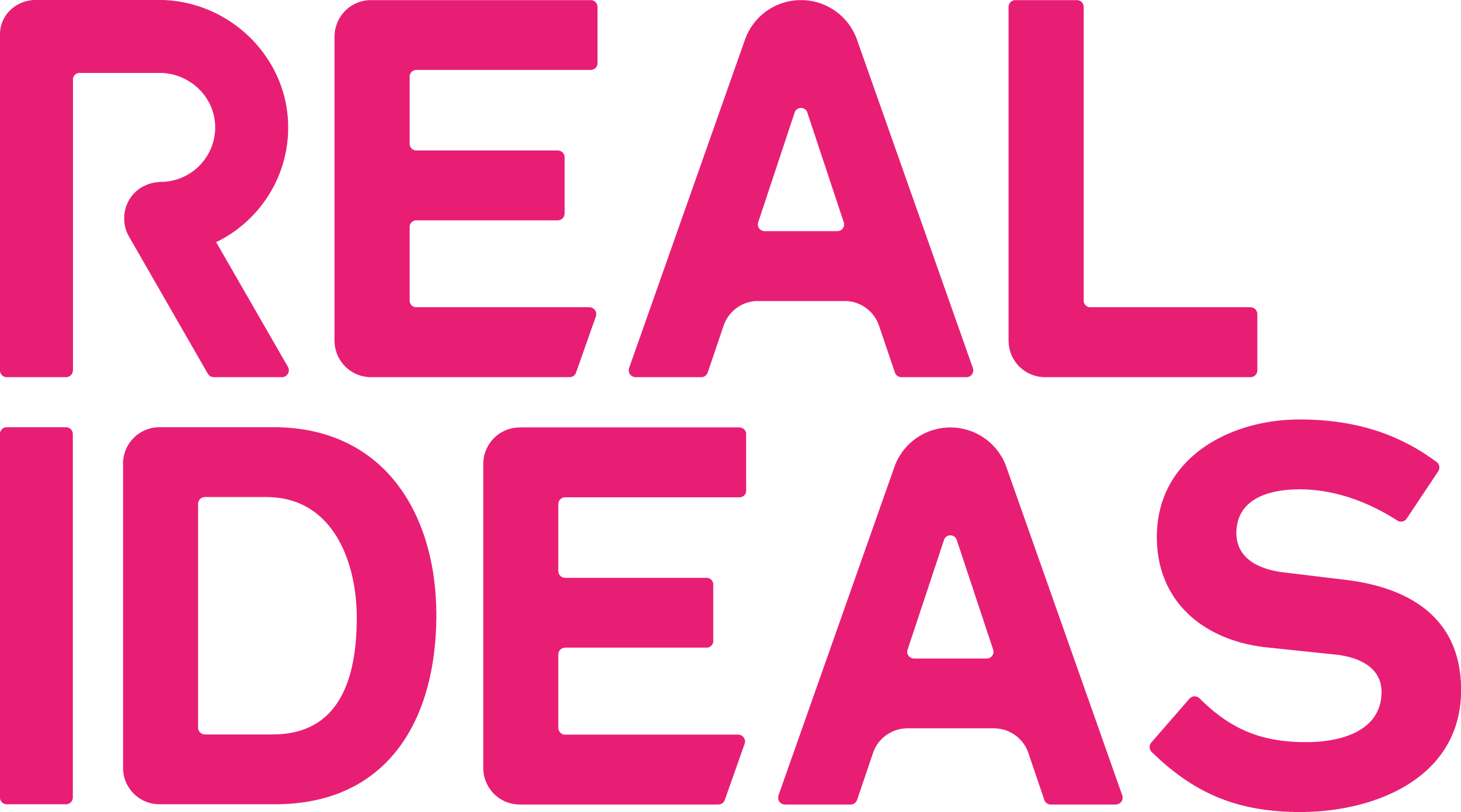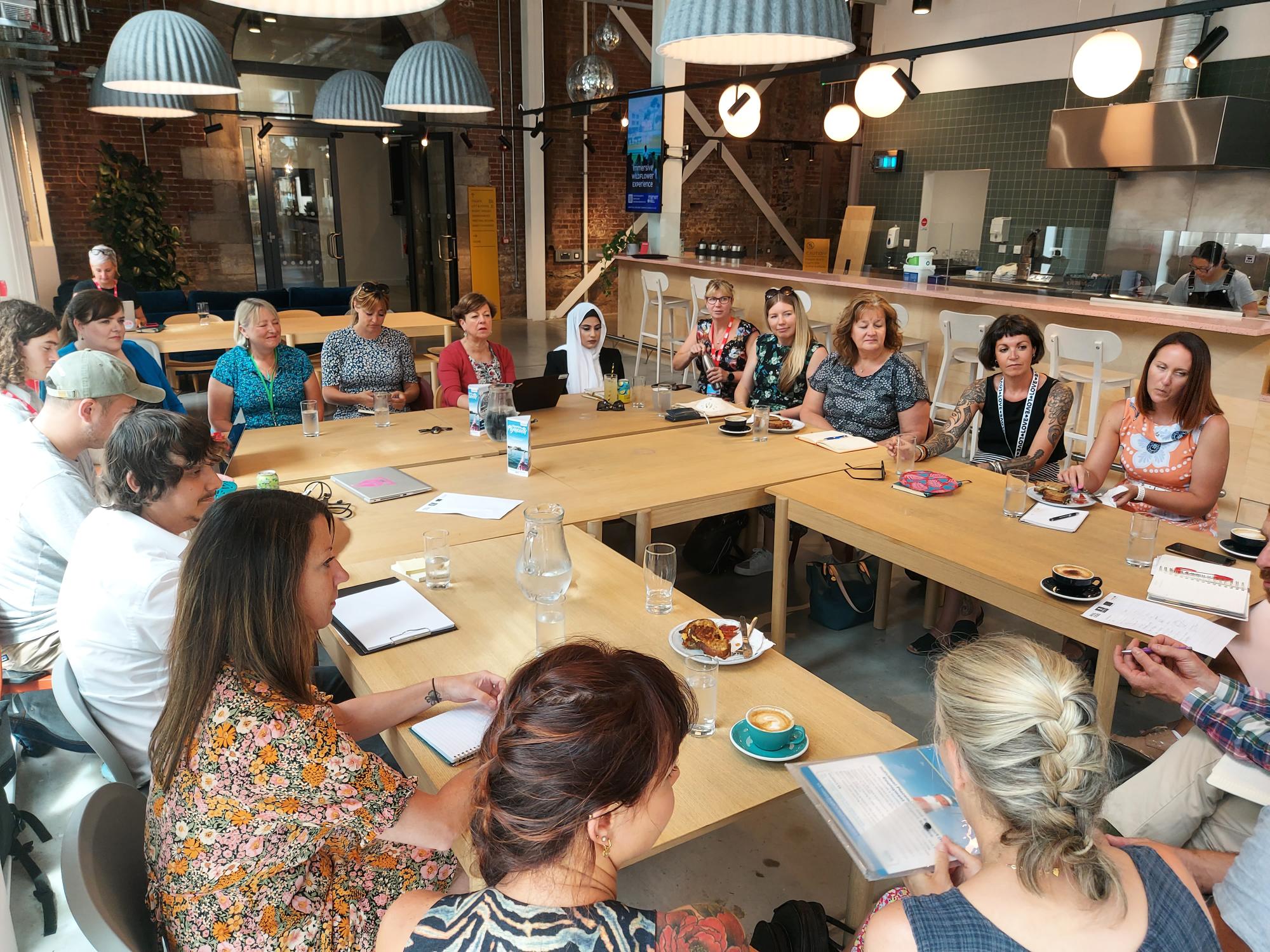This month’s working lunch was blessed by a sizable turnout with a few very welcome surprises! The theme was supposed to be belonging and ED&I but positive disruption may have been more appropriate! After a quick decision to change rooms and many tables and chairs being fetched, a roundtable was set up ready for discussion. Introductions started and with that came lots of stated commitment to disruption! Breaking the system, turning traditional recruitment processes on their heads, lots that people wanted to see change around. Totally our happy space but clear it wasn’t going to be a linear conversation that played by the rules!
The group heard a great case study of recruitment from award winning start up, Boost Innovations. CEO Sam Jackman talked about how they literally turned a traditional recruitment process upside down and started it by presenting an opportunity for a conversation asking, ‘do you want to work with us?’ on social media. This then led to open conversations about the role in question and inviting individuals to have taster days to see if the organisation and the type of work was for them. The goal of this way of recruitment was that they didn’t want to shoehorn someone into a role and instead wanted to find the right person for the job.
Through this process they did find someone, and began an open process where they worked with the individual to find the goals they would aim for in the role; where they might need support and also crafting a job description collaboratively with the individual. Finally, they spoke openly about how the person would want the role to develop and where they see themselves in the future. A great example of how to welcome and create a belonging culture by disrupting the hiring process in a very deliberate and structured way.
The conversation then moved towards the theme of belonging with many of the group talking about lived experiences of staff and potential staff and sharing of stories in which the focus was how individuals were supported in ways that maybe weren’t considered. An example of adjustments being made to accommodate and better serve international students who had very different expectations about how university works in England compared to where they were from was cited as an example of small things making big differences.
This story of reasonable adjustments led to many more examples of reasonable adjustments and how we can communicate our needs in a role, it was raised that ‘Sometimes a thumbs up or thumbs down is enough to tell the other person where you’re at.’ This is a great example about creating a culture of belonging by “disrupting” the stigma and fear of expressing how you’re feeling.
The conversation moved on to look at where and when building a culture of belonging really begins. It was raised that the culture begins wherever an organization or company has an opportunity to represent themselves. If the culture is set up well from the start it allows people to feel as if they can express themselves. “If people can’t see themselves in an organization they won’t approach it”. This swiftly began more conversation of peoples lived experiences in cultures they didn’t feel like they belonged. This along with stories of individuals from under-represented groups being repeatedly asked to take part in photo opportunities to enable the company to present representation.
In the spirit of disruption, the question was posed ‘why do you want to be more inclusive?’ A wonderful challenge to the practice of doing this to ‘tick a box’. The fact that this approach can create better staff teams, make business work better, present a situation that benefits the business, the staff and therefore – by default – the communities they employ from, is the case we need to make. Presenting a really strong rationale for this to the leadership of our city’s businesses is the job for right now. Getting this message out there can ensure a company undertakes change for the right reasons without it becoming a meaningless and not very effective tick box exercise.
One method of really understanding the best way to approach these changes is to bring in external people for a conversation about the places you can make small, medium and big changes. A reminder to all that this is a service Real Ideas can offer in the immediate term as part of the Plymouth Charter activity funded by the C-Care project. Please get in touch if you want to have a look at the changes you could start to make. Especially if you have some upcoming recruitment to undertake. Theatre Royal worked with a company called The Inclusion Agency to do something similar and took a massive amount of learning. It enabled them to measure where the company might be falling short.
This linked quite nicely with a point about construction and how DE&I feels very new in that sector. However, it was reminded that until you measure, you can look in at your own workforce and make a really ill-informed assumption about the lack of diversity in a place, when in fact a construction site work force may well be from many different backgrounds and experiences. You never know how diverse the org is until you ask and start a process even if you do know there is a particular in-balance such as gender.
Some lovely simple examples of fun within a team were shared as final thoughts on how to create belonging. Ice cream, Wimbledon, having pizza lunch on Fridays. Importantly the learning about how teams work together that can come from having fun together was really valuable. Larger work gatherings like team days, are a really great way of bringing everyone together but also to gain feedback from the team on how they feel within the working culture of the organisation.
Finally, the conversation focused on how the pandemic has changed how company’s hiring process has changed and how companies have had to revaluate they employ individuals. They have to work harder as it’s become a two-way process. ‘Why should they want to work with us?’ becoming an ever more important question for organisations to ask themselves.
There were also calls to action from Gifted Women who are looking for anyone who can provide 1 day per week unpaid work experience for the women they work with. Also Livewell SW employment specialist team are looking for businesses who would be able to provide safe working environments for those wanting to return to work from periods of time off for mental health or other long term health conditions. They also have a range of other offerings for businesses here. Also a reminder that CSW group have finding for in work training for staff as part of their Smart Skills programme.
Finally for this blog, another opportunity to share the wonderful and simple Gender Decoder tool aimed at ensuring you don’t use language that puts women off applying for your roles. Just copy and paste your text here and the algorithm does the rest. I am delighted and proud to discover that this blog – despite being written by 2 men – is strongly feminine coded.
Next month we are disrupting our own process and moving the lunch to the amazing Jabulani food court on Union St. The day will change too so it will be on Thursday the 11th Aug and the theme will be neurodiversity in the workplace. Book here. This blog, other resources and an online extension of the conversation exists in the linked in group of the same name. You can join it here. We hope to see you there!




